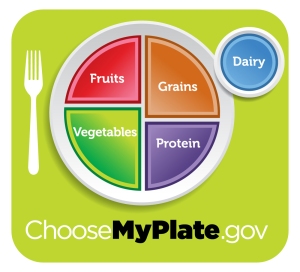Did you know February is School-Based Health Center Awareness Month?
January 22, 2013Spring Clean Your Health!
February 20, 2013 February is American Heart Month and March is National Nutrition Month, meaning this is the perfect time to focus on eating healthier for your heart. Below are 5 simple nutrition tips that can help you improve the health of your heart.
February is American Heart Month and March is National Nutrition Month, meaning this is the perfect time to focus on eating healthier for your heart. Below are 5 simple nutrition tips that can help you improve the health of your heart.
1. Make the switch to whole grains. Swap out white pasta and bread for the heart healthy whole-wheat options. Whole-wheat products are packed with fiber, which helps to lower your blood cholesterol, keep your blood vessels clean, and decrease your risk for a heart attack or stroke. When choosing a whole-grain product, check the nutrition label. Pick products that have 3 grams of fiber or more per serving.
 2. Increase consumption of fruits and vegetables. Research indicates that individuals who consume 2½ cups of fruits and vegetables per day have reduced risk of cardiovascular disease, including heart attack and stroke. Add a piece of fruit to your breakfast, choose a fruit or vegetable for an afternoon snack, or mix vegetables into your pasta sauce. A bowl of fruit can also help to satisfy your nightly sweet tooth.
2. Increase consumption of fruits and vegetables. Research indicates that individuals who consume 2½ cups of fruits and vegetables per day have reduced risk of cardiovascular disease, including heart attack and stroke. Add a piece of fruit to your breakfast, choose a fruit or vegetable for an afternoon snack, or mix vegetables into your pasta sauce. A bowl of fruit can also help to satisfy your nightly sweet tooth.
3. Eat breakfast everyday. You have heard it before: breakfast is the most important meal of the day. Research shows individuals who eat breakfast have healthier body weights and make healthier food choices throughout the rest of the day. Are your mornings too rushed for breakfast? Grab a fiber-rich granola bar and a piece of fruit for the road. You could also make a batch of homemade fruit smoothies on Sunday night, freeze them in individual portions, and then take one with you to work.
4. Limit sugar-sweetened beverages, such as sodas, fruit drinks, sweetened coffee  drinks, and sports and energy drinks. Added sugars in these beverages provide unwanted calories and minimal essential nutrients. Research strongly suggests that those who consume more sugar-sweetened beverages have higher body weight than those who drink less. Furthermore, excess sugar intake can lower good cholesterol, raise bad cholesterol, and increase blood pressure. Does plain water not cut it for you? Add frozen fruit, lemons, lime, or fresh herbs to ice water for a more flavorful drink.
drinks, and sports and energy drinks. Added sugars in these beverages provide unwanted calories and minimal essential nutrients. Research strongly suggests that those who consume more sugar-sweetened beverages have higher body weight than those who drink less. Furthermore, excess sugar intake can lower good cholesterol, raise bad cholesterol, and increase blood pressure. Does plain water not cut it for you? Add frozen fruit, lemons, lime, or fresh herbs to ice water for a more flavorful drink.
5. Eat 8 or more ounces of seafood per week. Seafood includes both fish (salmon, halibut, tuna, trout, and tilapia) and shellfish (shrimp, crab, scallops, and oysters). These foods provide us with an excellent source of omega-3 fatty acids, which are shown to decrease the risk of cardiac disease in individuals with and without pre-exciting cardiovascular disease. When preparing your seafood, avoid frying it, as this adds an unneeded source of fat. Instead, bake or grill your seafood.

